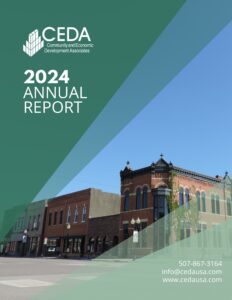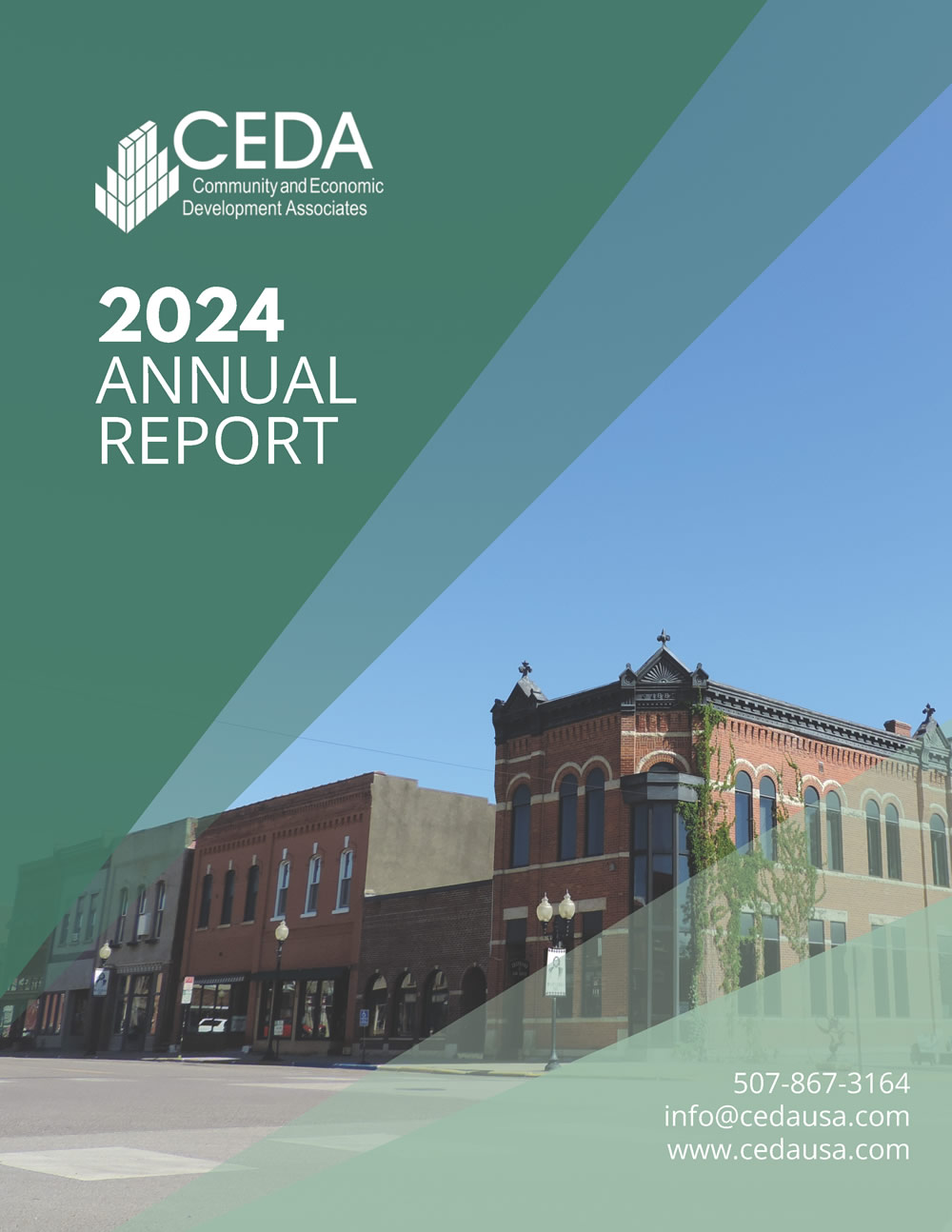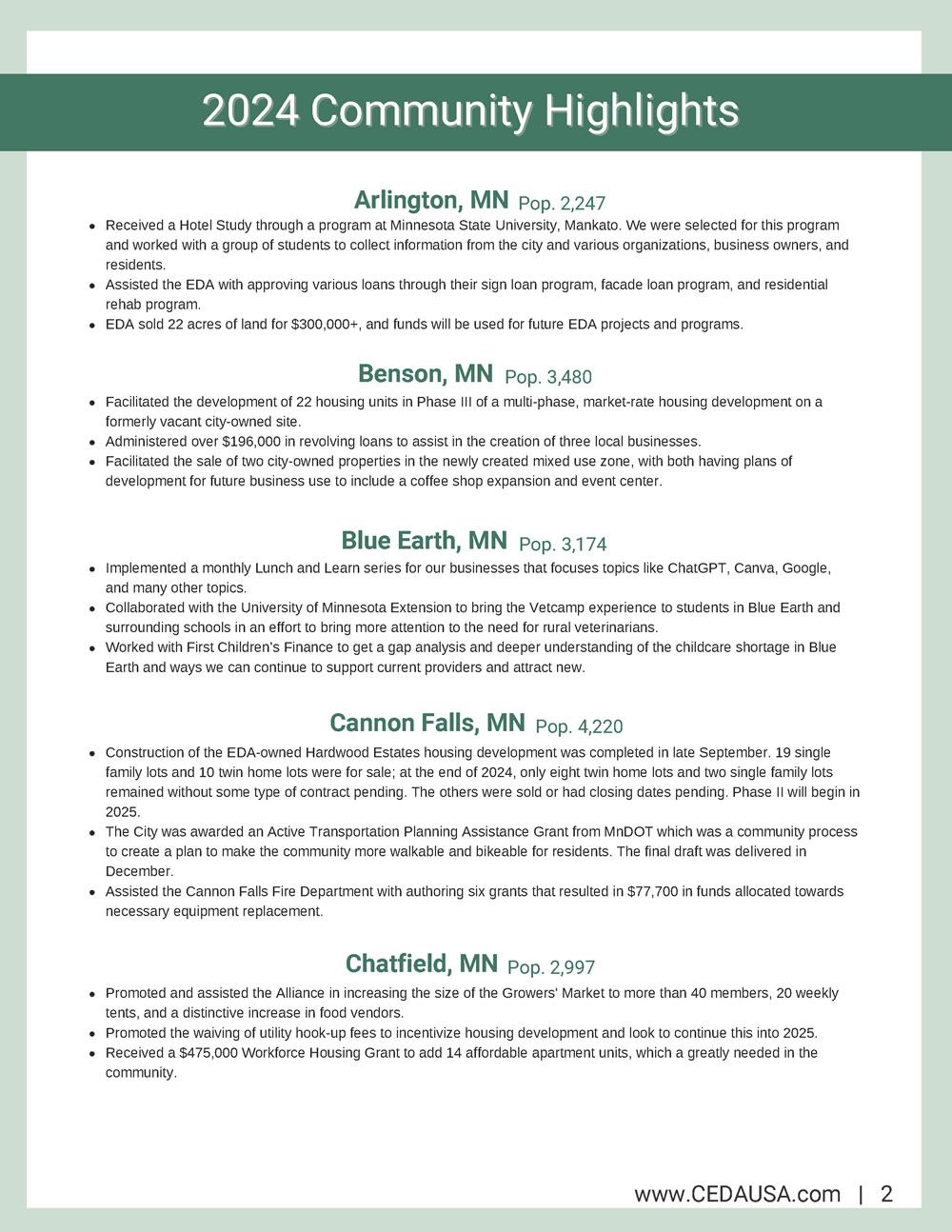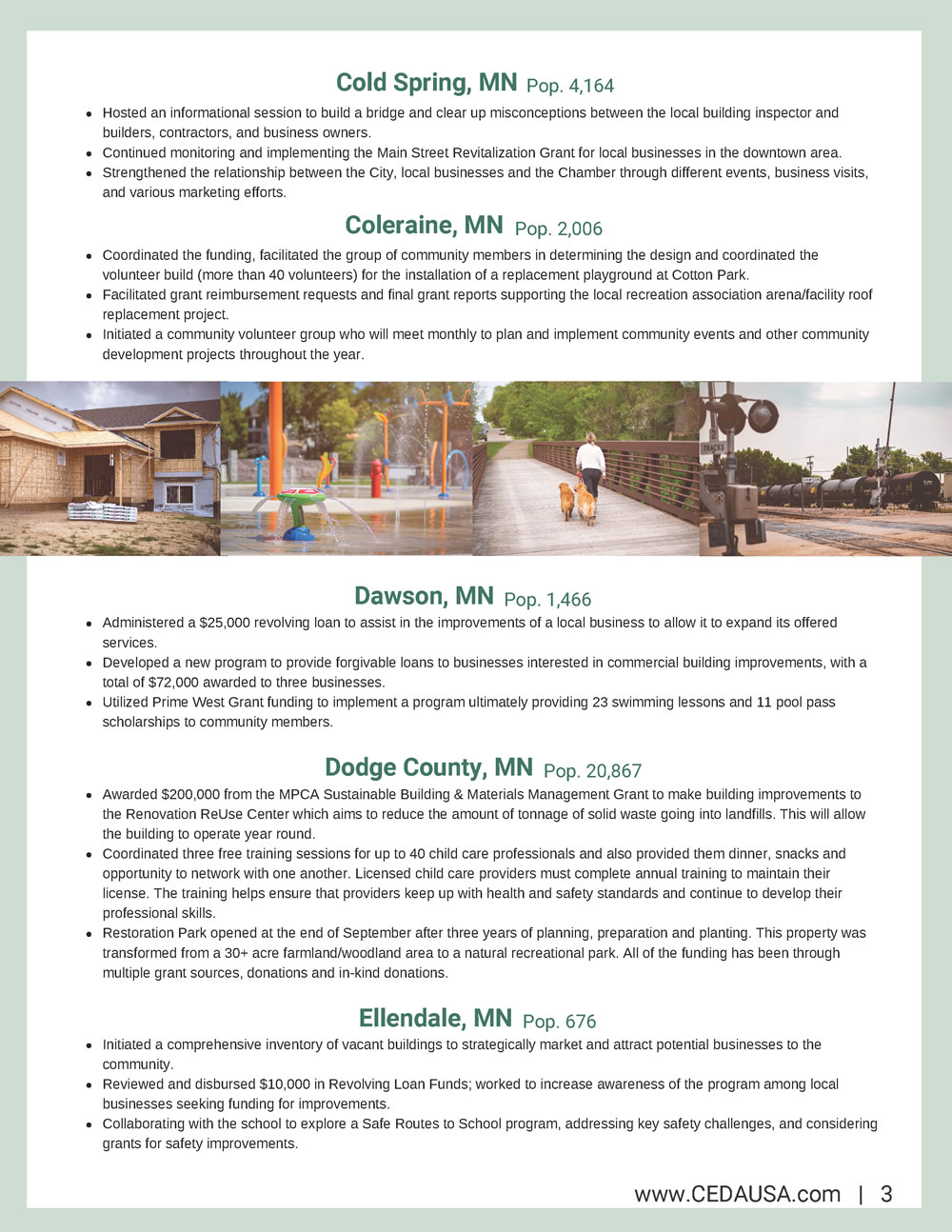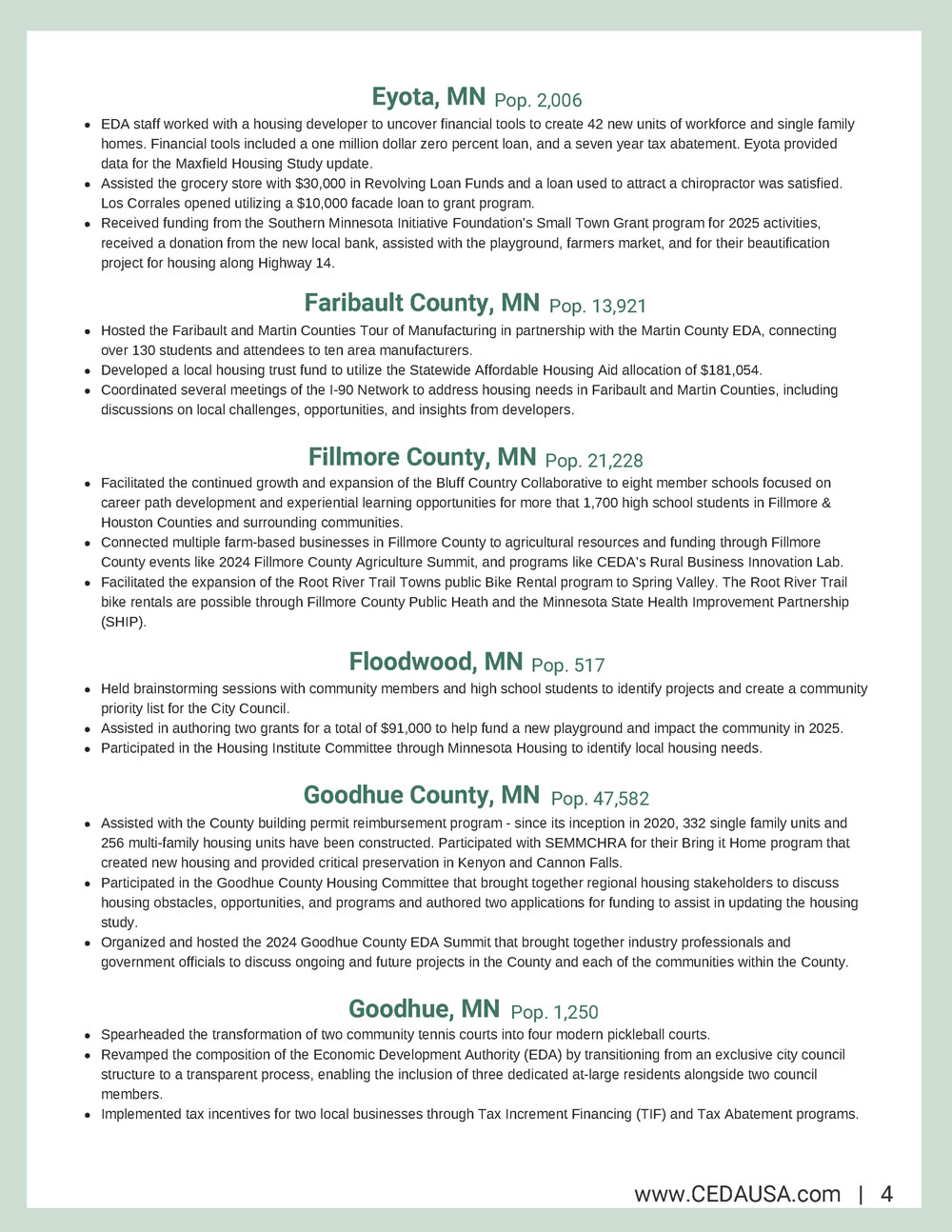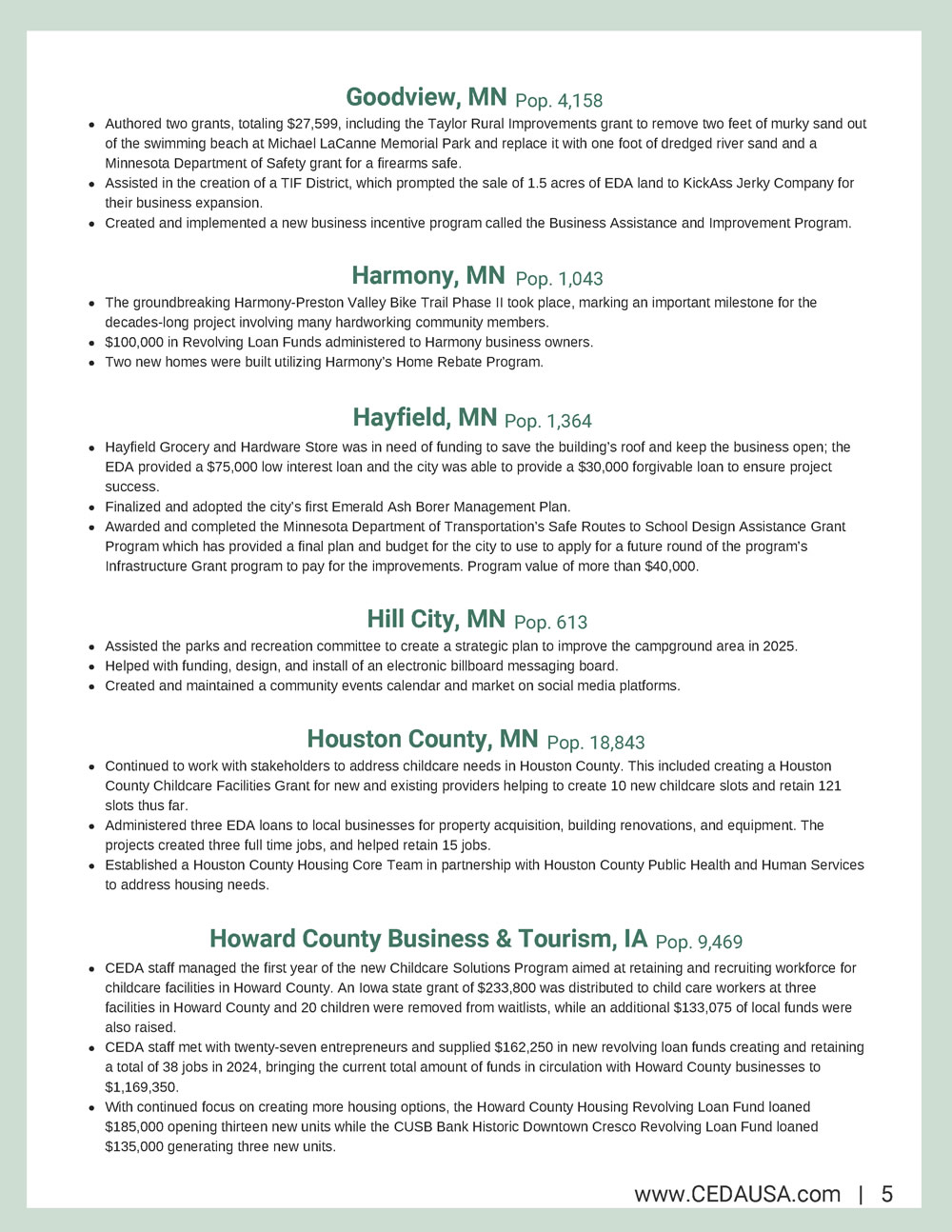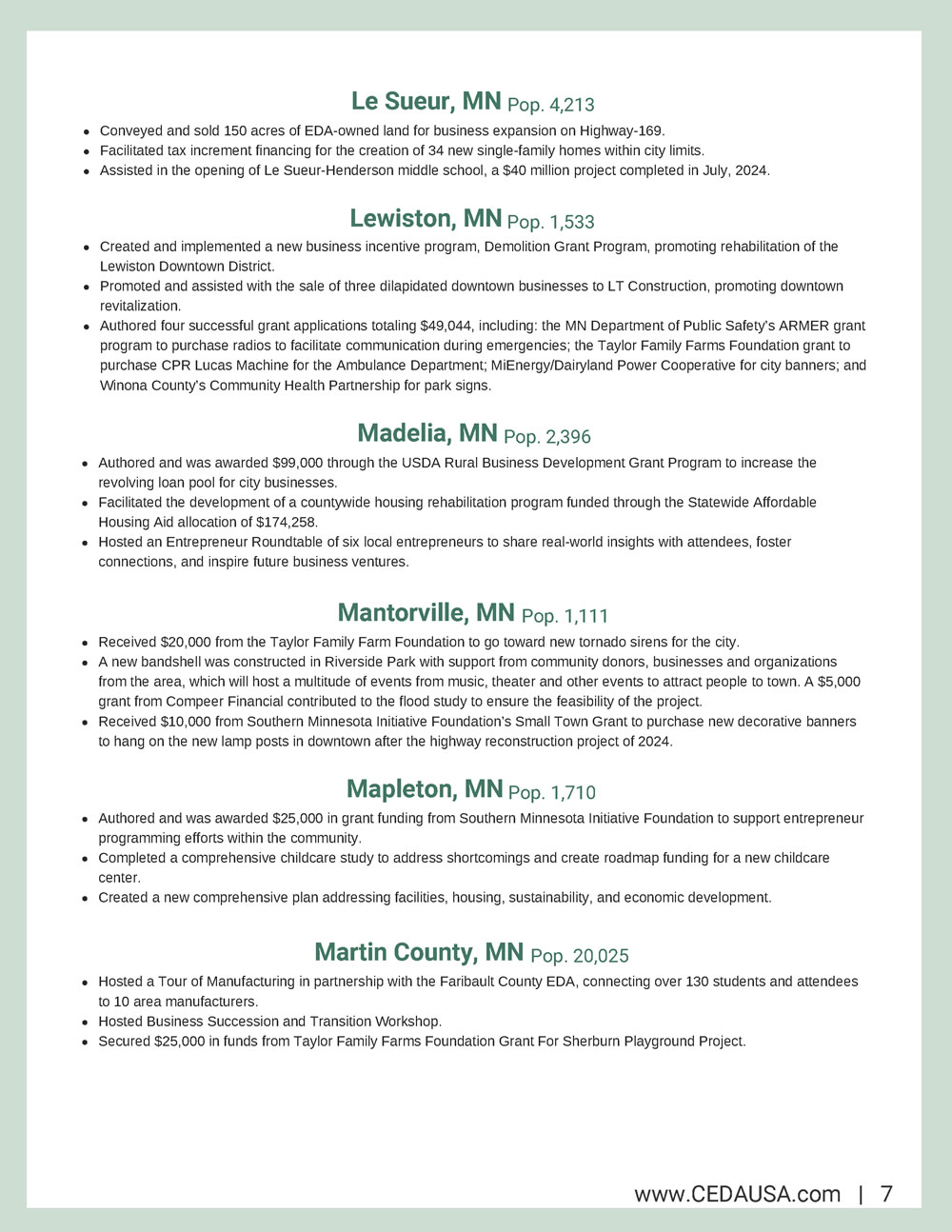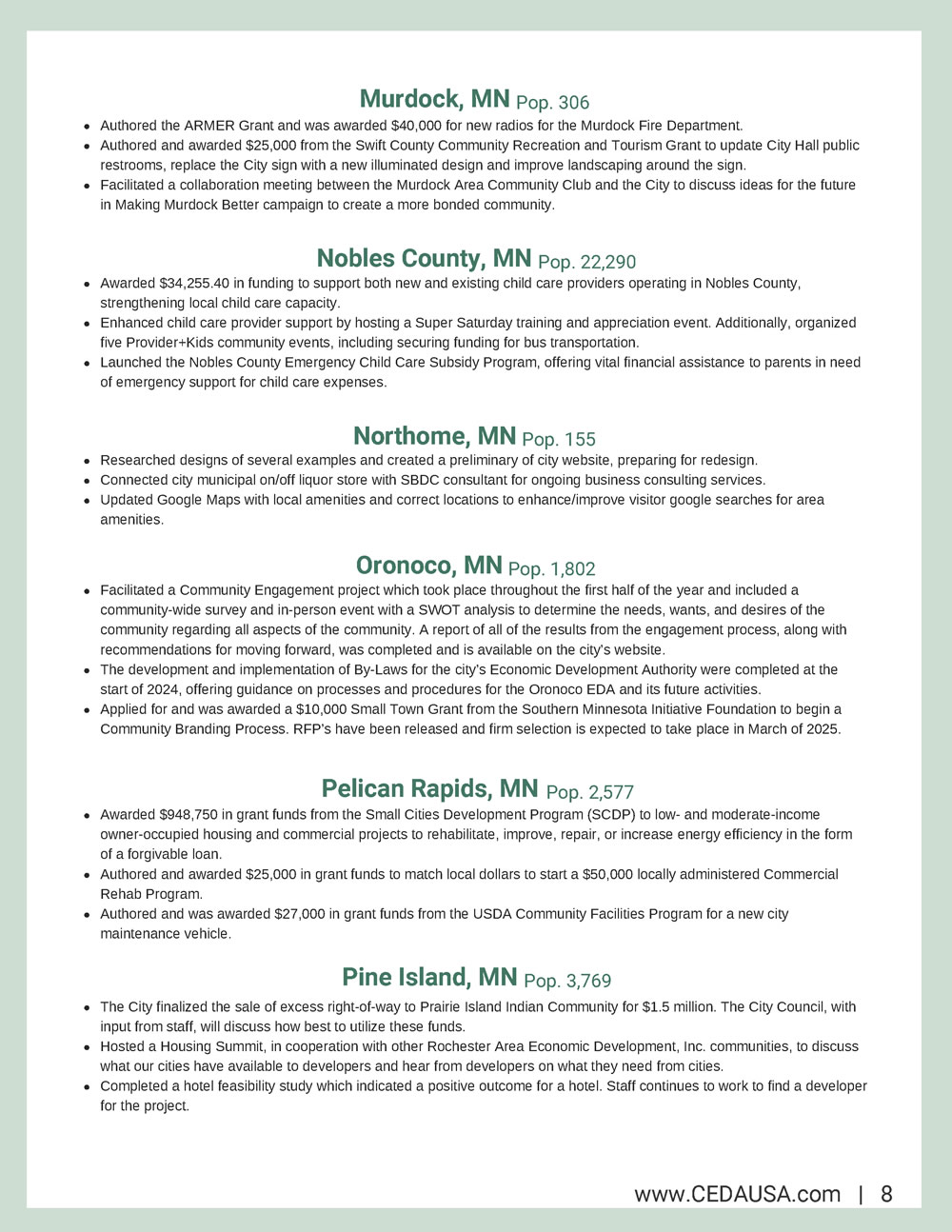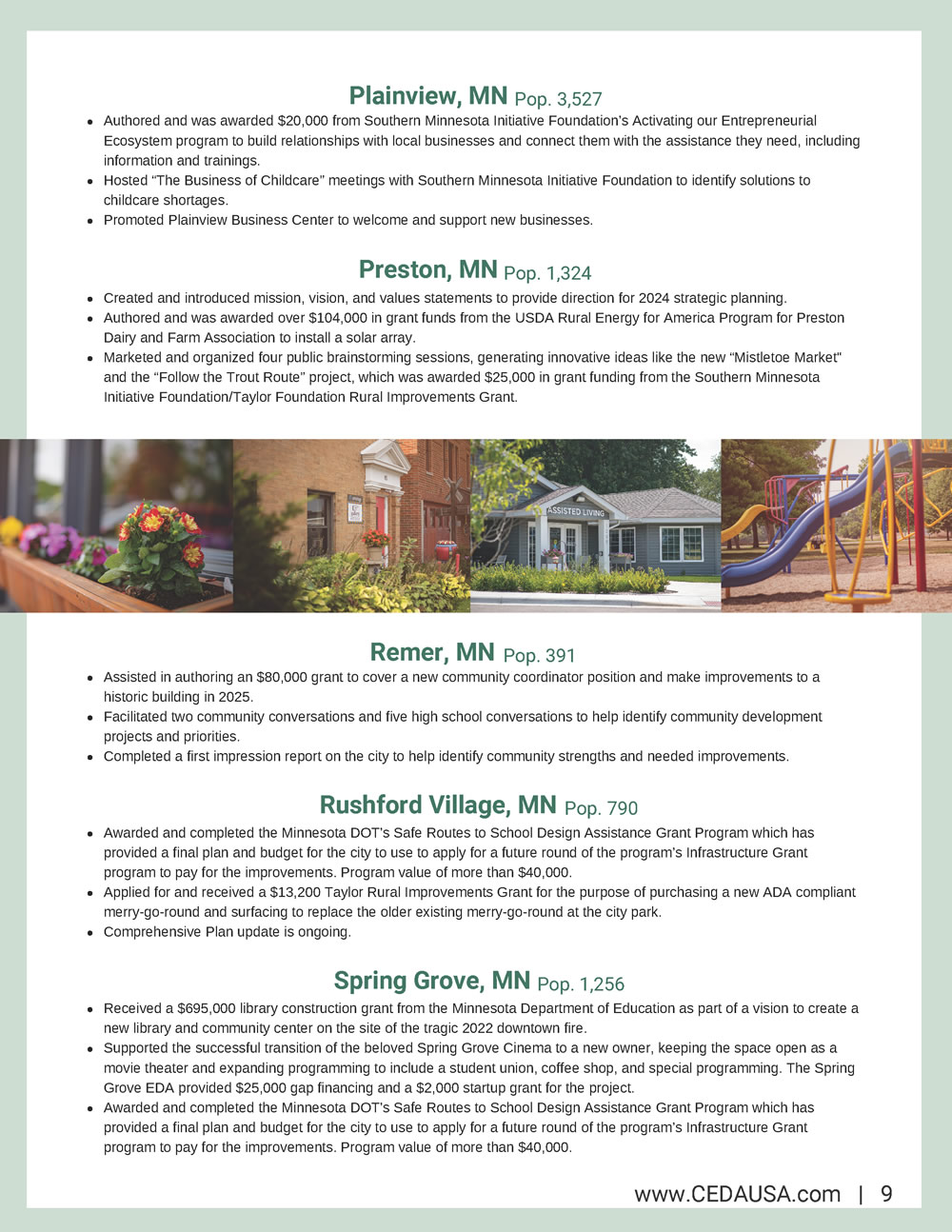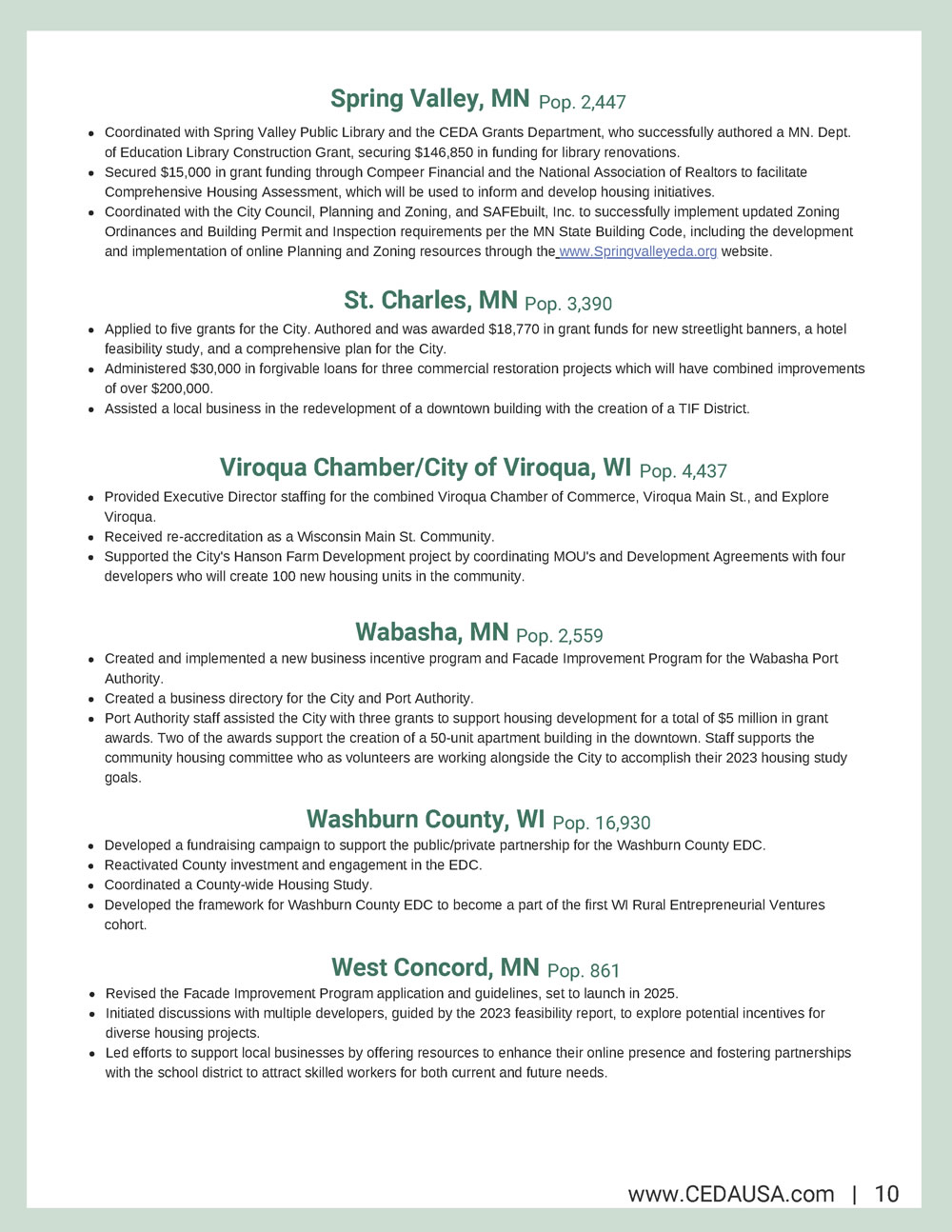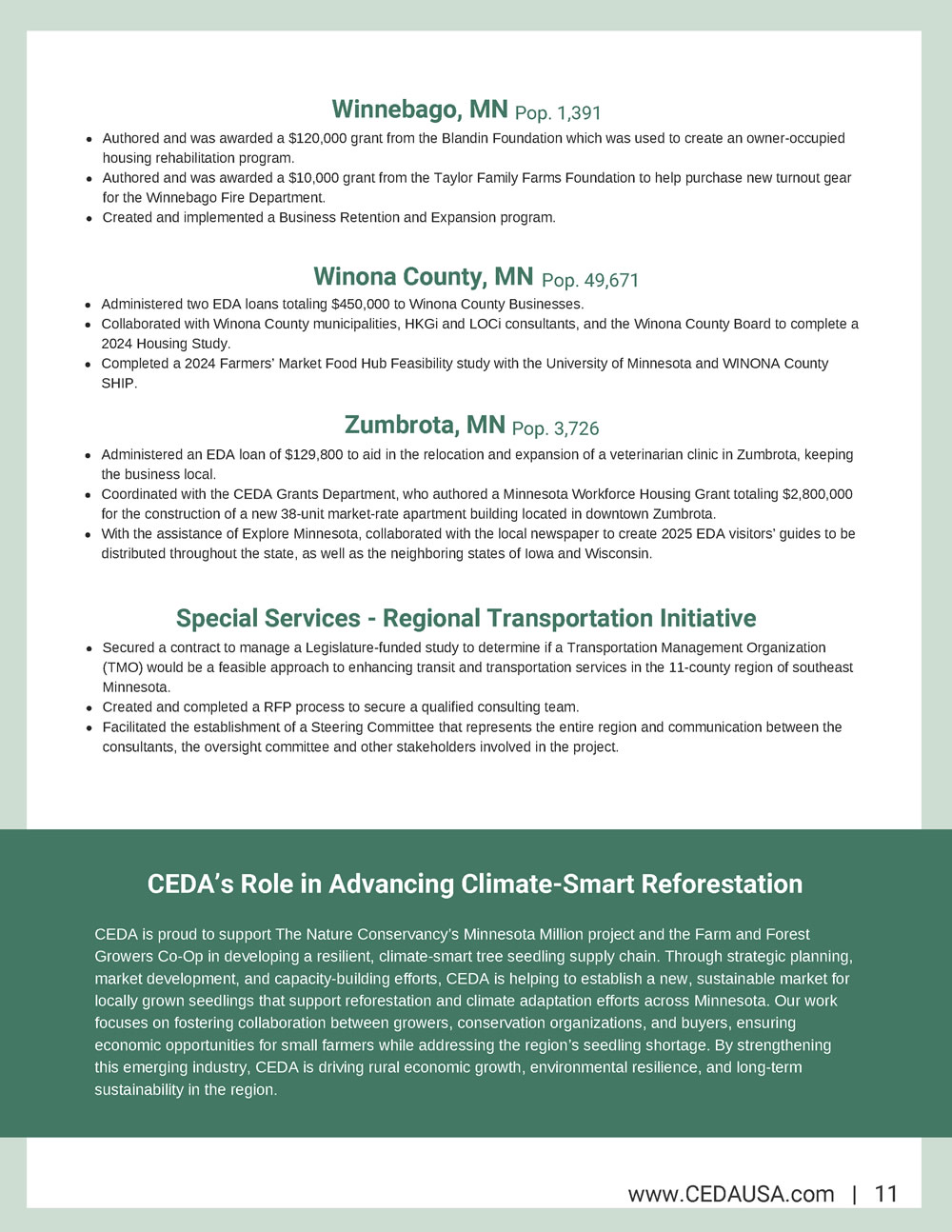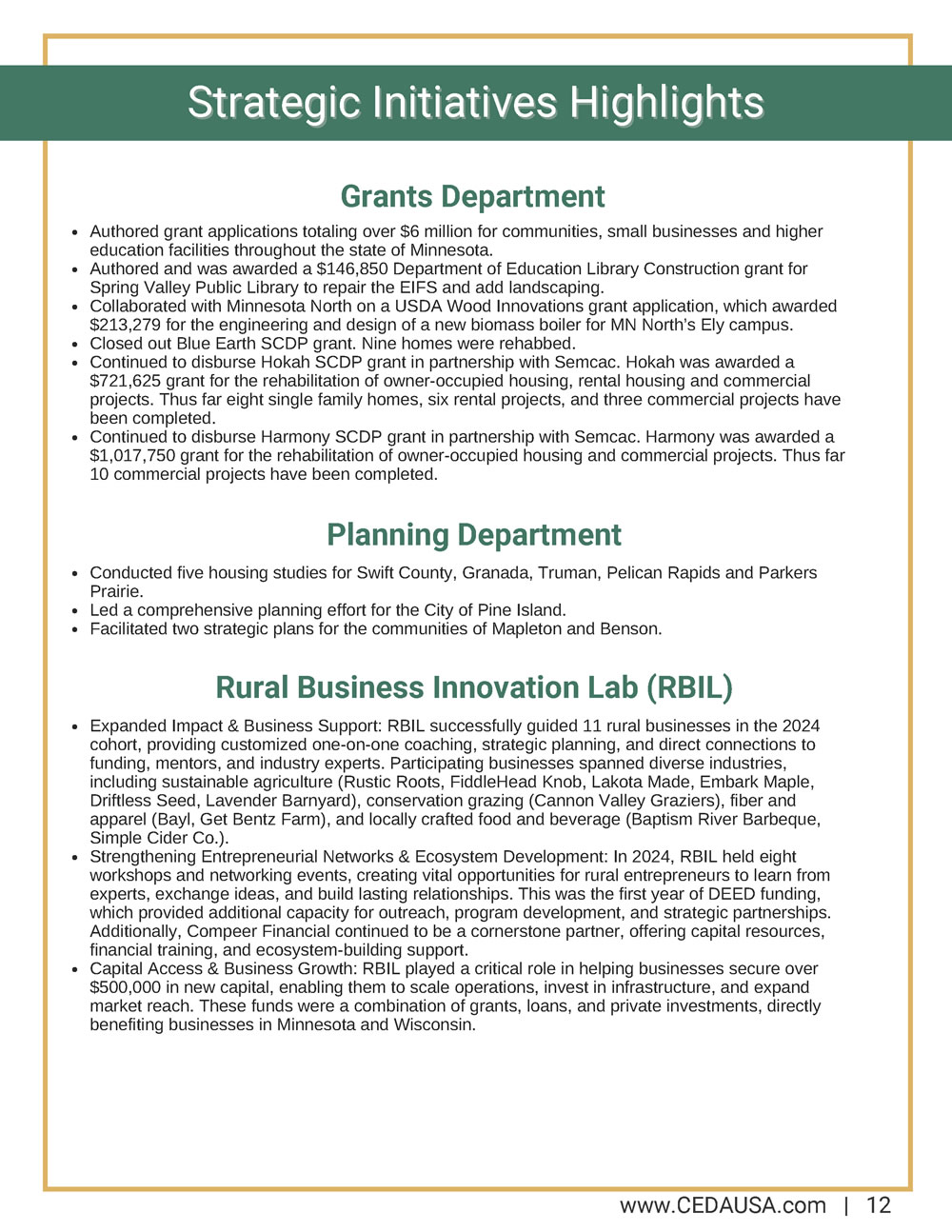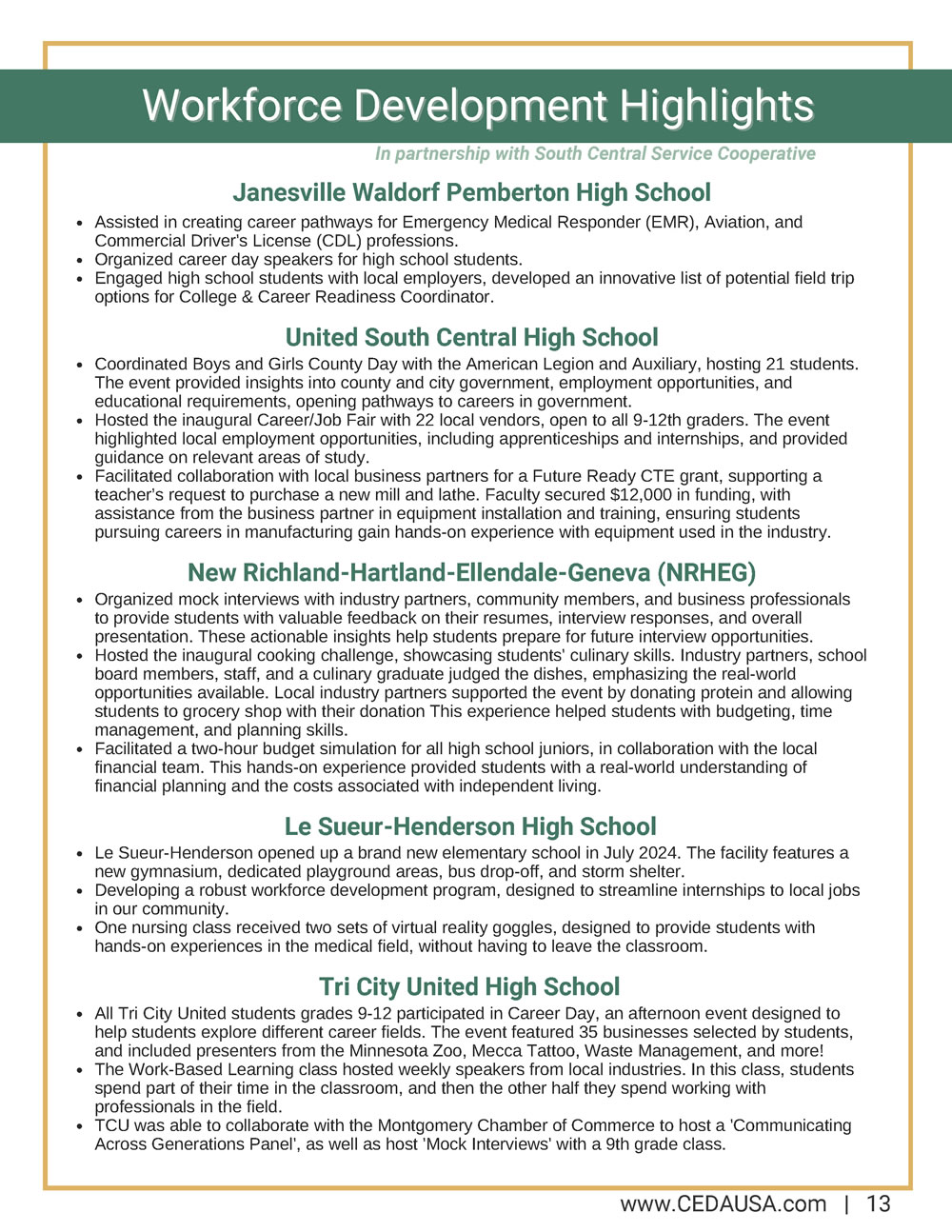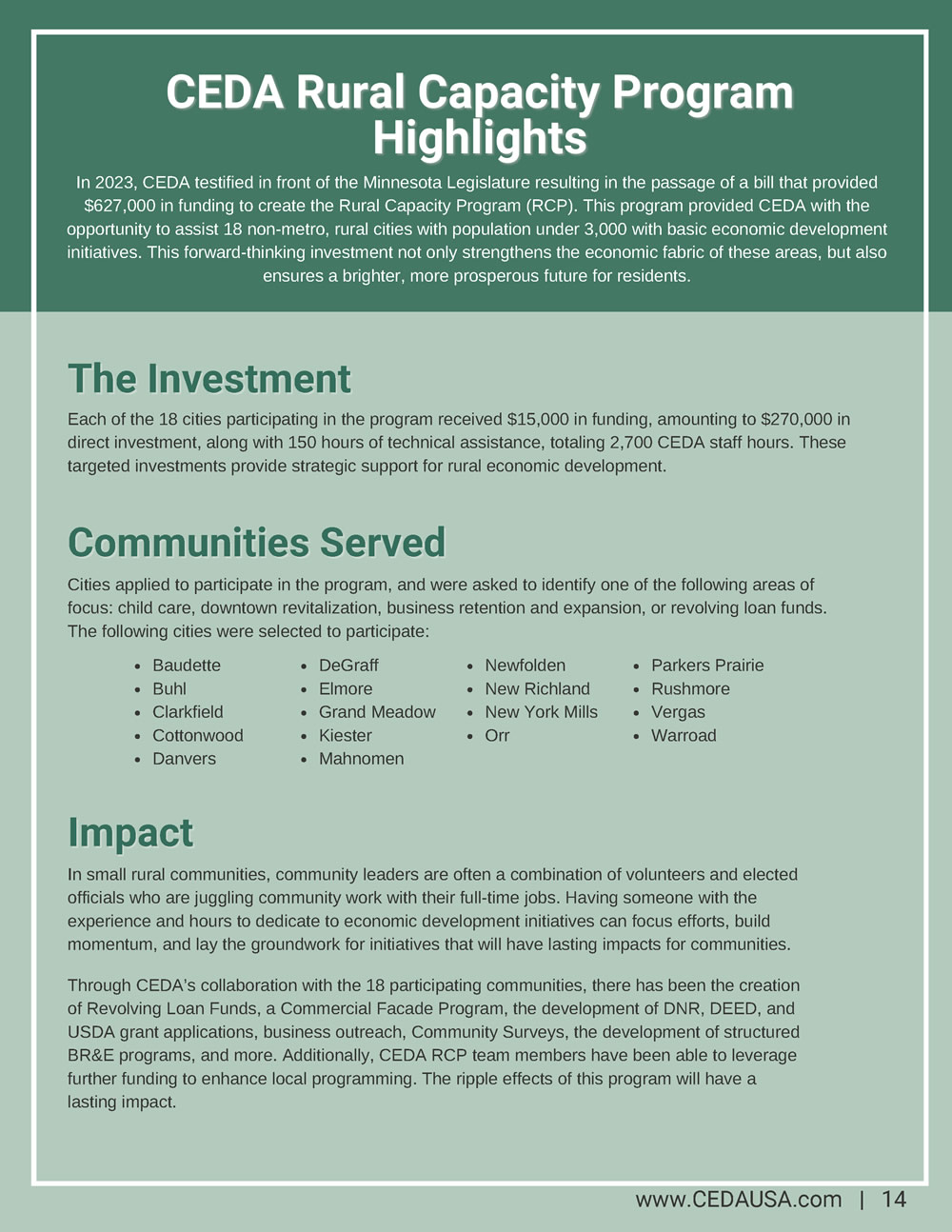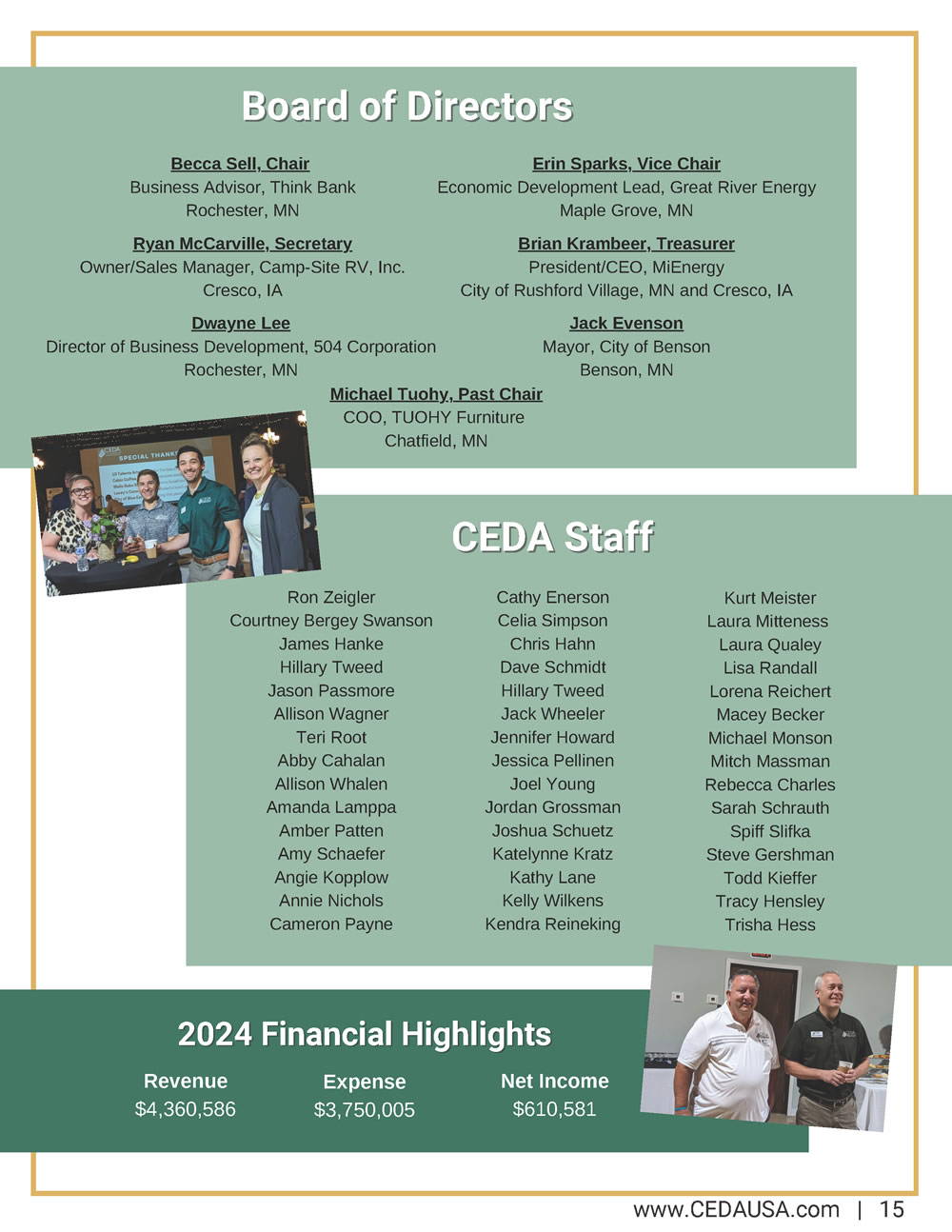By Annie Nichols
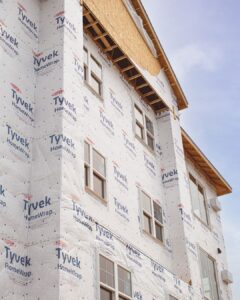 CEDA’s Planning Department provides data-driven, community focused planning reports to help communities pursue their next project. We specialize in long range planning including housing studies, comprehensive planning, and strategic planning.
CEDA’s Planning Department provides data-driven, community focused planning reports to help communities pursue their next project. We specialize in long range planning including housing studies, comprehensive planning, and strategic planning.
Here are details on when your community should look at updating a housing study, and how CEDA can help.
So, when is it time for a new housing study?
1. Low Development Activity
Are you wanting to see more new housing construction? CEDA’s Comprehensive Housing Study process is designed to identify development and funding opportunities to generate implementable ideas and recommendations. We can help kickstart housing efforts and identify projects that are best suited to your community.
2. Regularly Scheduled Housing Check in
Has it been awhile since you updated your housing study? We recommend updating a housing study every 5 years, especially when the community is experiencing development activity. The CEDA team can ensure development is meeting the needs of local residents, and also share key resources to make sure you are up to speed on the latest trends and funding sources.
3. Meet Lending Requirements
Do you have a developer in mind for your next housing project? When you begin working with a developer, they are likely to ask for a housing study – especially if they will be operating with a construction loan or similar lending program. A housing study will provide the community, developer, and lender with due diligence and peace of mind.
4. Leverage Funding
Does your housing project have a cost gap? A housing study identifies more than simply the type of housing needed, it can also provide grant and funding recommendations for your next project. The State of Minnesota has made almost $1 billion available for housing activities, and several are specifically geared towards Greater Minnesota communities. Regardless of your location, CEDA can identify available housing programs, and connect you with relevant resources and supportive organizations to bridge funding gaps.
5. Gather Community Feedback and Build Consensus
Likely, your community has more than one housing need, but what should you prioritize? Housing studies gather community feedback and conduct community engagement efforts to find momentum and build consensus for project support. This creates a more compelling narrative when looking at funding.
Ultimately, a comprehensive housing study is a tool that can be used to gather data, understand market trends, anticipate future needs and encourage community support. Let us help you bring your next housing project to life!
For more information, contact Annie Nichols, Planning Manager, at annie.nichols@cedausa.com
 familial ties to the land and to the place, and longstanding relationships that create dense social networks where people feel they know their neighbors. What these rural communities often lack, however, is the built capital (buildings, public spaces, etc.) to activate the social connections that draw people to live in rural places. These spaces are also vital for welcoming newcomers who may not know where to plug in to community groups, volunteering opportunities, etc.
familial ties to the land and to the place, and longstanding relationships that create dense social networks where people feel they know their neighbors. What these rural communities often lack, however, is the built capital (buildings, public spaces, etc.) to activate the social connections that draw people to live in rural places. These spaces are also vital for welcoming newcomers who may not know where to plug in to community groups, volunteering opportunities, etc. Thirteen innovative rural businesses from Minnesota and Wisconsin have been selected for the Rural Business Innovation Lab’s (RBIL) 2025 cohort.
Thirteen innovative rural businesses from Minnesota and Wisconsin have been selected for the Rural Business Innovation Lab’s (RBIL) 2025 cohort.